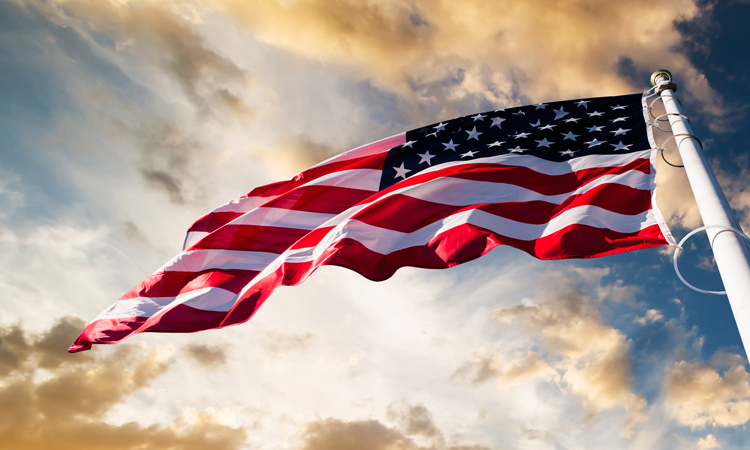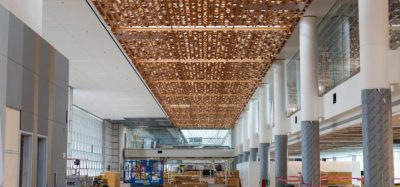ACI North America calls for additional aviation support from U.S. Congress
- Like
- Digg
- Del
- Tumblr
- VKontakte
- Buffer
- Love This
- Odnoklassniki
- Meneame
- Blogger
- Amazon
- Yahoo Mail
- Gmail
- AOL
- Newsvine
- HackerNews
- Evernote
- MySpace
- Mail.ru
- Viadeo
- Line
- Comments
- Yummly
- SMS
- Viber
- Telegram
- Subscribe
- Skype
- Facebook Messenger
- Kakao
- LiveJournal
- Yammer
- Edgar
- Fintel
- Mix
- Instapaper
- Copy Link
Posted: 22 June 2020 | International Airport Review | No comments yet
In addition to calling for $13 billion in financial support, ACI-NA has made several aviation policy recommendations to the U.S. Congress.


On 18 June 2020, President and CEO of Airports Council International – North America (ACI-NA), Kevin M. Burke, testified at the U.S. Congress’ House Subcommittee on Transportation and Maritime Security hearing to discuss the aviation industry and air travel during the COVID-19 era.
During his testimony, Burke explained that the unexpected plunge in travel related to COVID-19 is expected to cost U.S. airports a minimum of $23 billion and stressed the need for additional federal funding in order to help airports meet operating costs, enhance security and provide for the health of the travelling public.
Burke said: “Powerful economic engines before the COVID-19 pandemic, generating more than $1.1 trillion in annual activity and supporting over 10 million jobs, U.S. airports have been reduced to mere shells of their former selves, with passenger traffic down by nearly 90 per cent from the levels we saw this time last year. As a result, airports, airlines, and tenants are all now struggling to survive. ACI-NA estimates U.S. airports face at least $23 billion in operating losses as a result of the COVID-19 pandemic, based on preliminary data about air service reductions to date. On top of that, tenants at U.S. airports – such as airlines, concessionaires and rental car companies – are all seeking financial relief from airports via rent/fee waivers and deferrals.”
“Meanwhile, airports must still keep the lights on, provide for the health, safety and security of employees and tenants, while ensuring the bills are paid. At the same time, U.S. airports face growing operating expenses as they increase cleaning of public areas, checkpoints and restrooms; add more hand sanitising stations for passengers and employees; install plexiglass barriers in passenger-facing areas; procure cleaning supplies and personal protective equipment; and implement physical distancing measures,” he added.
Within his testimony, Burke made several key funding and policy recommendations to members of Congress, including:
- $13 billion in additional emergency assistance to help airports meet growing operating costs and their debt-service obligations in the coming year
- Working with key stakeholders to develop and implement new measures to protect public health, including creating a “touchless” aviation security screening process that provides adequate physical distancing for passengers
- Establishing a joint advisory panel involving the U.S. Department of Homeland Security (DHS), the U.S. Department of Transportation (DOT), the U.S. Department of Health and Human Services (HHS), the U.S. Department of State (DOS) and industry stakeholders to develop recommendations for the operational, infrastructure, and technology issues related to pandemic planning.
Drawing to a close, Burke highlighted the importance of airports in sustaining economic development, stressing that co-operation between all stakeholders is paramount: “Airports are leading economic engines in their community and investments in airports have multiplying impacts throughout their regions. I hope we can all work together over the next few months to help airports weather this crisis so that we can get Americans back to work and travelling again though an aviation system that is stronger, safer, more secure and more resilient than ever.”
Related topics
Aeronautical revenue, Airport crisis management, COVID-19, Economy, Funding and finance, New technologies, Passenger experience and seamless travel, Passenger volumes, Regulation and Legislation, Safety
Related organisations
Airports Council International North America (ACI-NA), The U.S. Department of Transportation (DOT), U.S. Department of Health and Human Services (HHS), U.S. Department of Homeland Security (DHS), U.S. Department of State (DOS), United States Congress

















